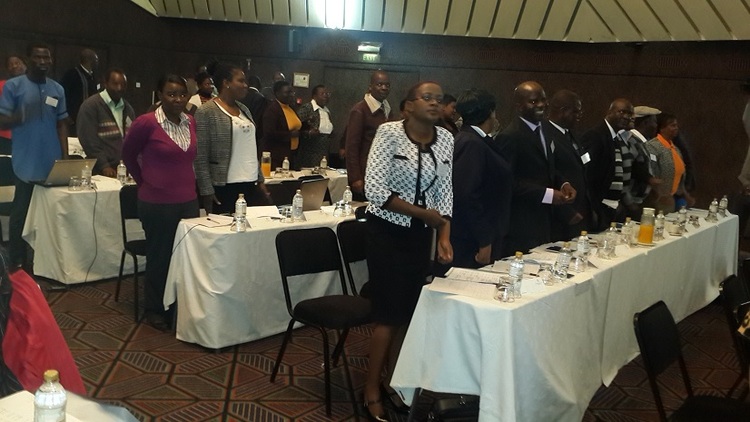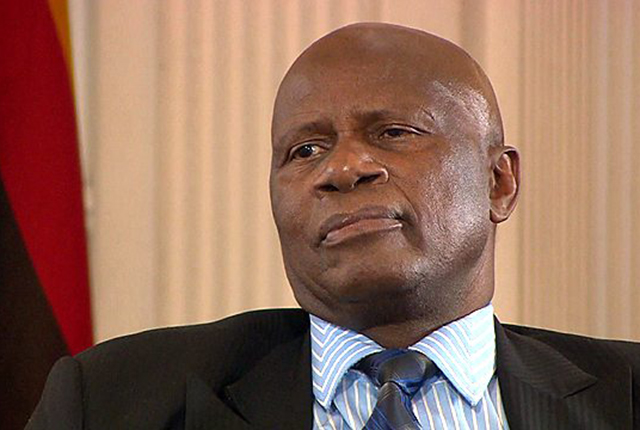Challenge to writers, publishers

 Beaven Tapureta Bookshelf —
Beaven Tapureta Bookshelf —
A warm welcome to you all as we step into a brand new year, hoping you had a wonderful book reading crossover and thanks to the publishers!
Many a time we hardly think about the publisher when a new book is published; it is the author who gets talked about. We wouldn’t be enjoying books had it not been the determination of our local publishers also.
The local publishing industry has undergone dramatic changes in the past decade or so mainly due to the emerging new tech-driven class of publishers and/or self-publishers who are starting their own publishing companies. Without proper analysis, it seems too early to conclude that the changes indicate growth of the publishing industry.
The year is still novel and no doubt there are new books forthcoming, with some already announced late last year. Bookshelf would like to throw in a “minuscule” but authentic challenge to local writers and publishers.
One can see that new books are mainly from those who could be described as “writer-publisher”. They are writers who are stamping their presence in the arena by publishing a number of works of fellow new writers whom the established publishers in Zimbabwe may have turned away. The upsurge in self-publishers has mainly been due to the many rejections which new authors receive from senior publishers who would be strictly looking for quality, relevant and market-oriented works.
However, while this new class of publishers has a worthwhile vision to develop local literature, they must be willing to learn more about their trade.
Without guidance from the experienced, the new/young publisher risks becoming big “vanity press” in a country that has known dignified processes of publishing which laid the foundation for the literature we enjoy today.
Zimbabwe wouldn’t want vanity press to take over our publishing industry because what vanity press does is simply what its name means – vain publishing! It gives false pride to the author.
According to Wikipedia, vanity press or vanity publisher, or subsidy publisher is a term describing a publishing house in which authors pay to have their books published.
Vanity presses make money from authors rather than from selling books. There is not much done in terms of promoting the book once they print a paid-for number of copies. The ultimate reader for whom the book is intended is forgotten.
Books published by these vanity presses are poorly edited; you are let down by the multiple spelling mistakes, badly written blurbs, bad and obvious titling. In some cases, if it’s an anthology, it’s either a one-theme anthology or one poem/short story pretending to be 30 poems/short stories!
Authors should be aware of these vanity presses posing as big publishers, attracting authors by fake social media profiles, and promising authors overnight success. We do not want to seem to be a country publishing literature that soon becomes litter!
Normally there are a few copies published because the author has to pay the so-called “publisher” to get some more copies printed for him/her. The author is charged a fee for the editing, typesetting, designing and printing of the book. This is sad because the cash-strapped writer is then lied to by his/her ego to go ahead with taking the risk.
Bookshelf has as a good example an English novel written by a Bulawayo-based new author but published by someone who did his work in a hurry just to get the cash!
The author recently told Bookshelf she is intending to re-publish her novel after spending large amounts of money to get it published by this UK-based publisher. The novel, although she officially launched it, is dotted with typos and mistakes which could have been edited out.
While with long established publishers the author normally pays nothing, leaving the publisher to foot the bill, it is different with new publishers who enter into an author-publisher partnership which entitles the author to contribute towards the publication of his/her work.
A large percentage of writers who have been published by these fairly unknown publishers have actually paid for everything even beyond printing and binding the book.
Selling of the book is sometimes done by the author who also has to go back to the publisher to pay for any copies he/she might need! Imagine calling yourself “published” when you only have five copies of your work and you are continuously paying the publisher to get more copies!
Established publishers used to promote their publications within and outside the country in the case of English works. Nowadays, they also have fallen in the trap of only promoting their books via the school curriculum.
Once the book is in the school system, only students know about it whereas in the Literature Bureau era we could see book vans touring the schools and communities around the country.
There were radio programmes which worked as promotional activity for a new book or author. It is conceivable that the costs of promoting a book have risen but the truth is one cannot do away with this important stage in the whole publishing process.
The time is now for accomplished publishers in Zimbabwe to put their knowledge and experience in books or other forms accessible to the upcoming publishers willing to explore talent.









Comments